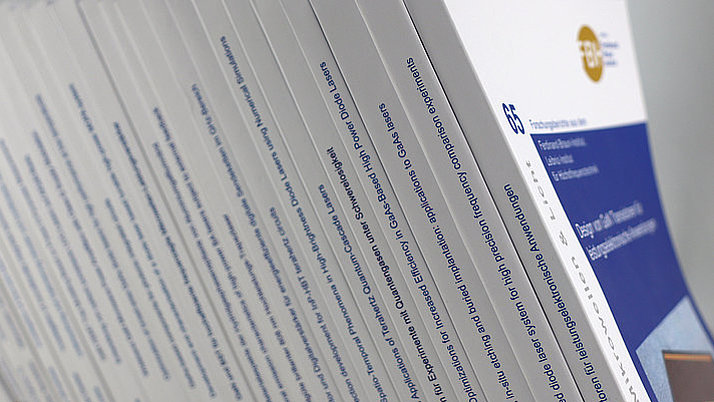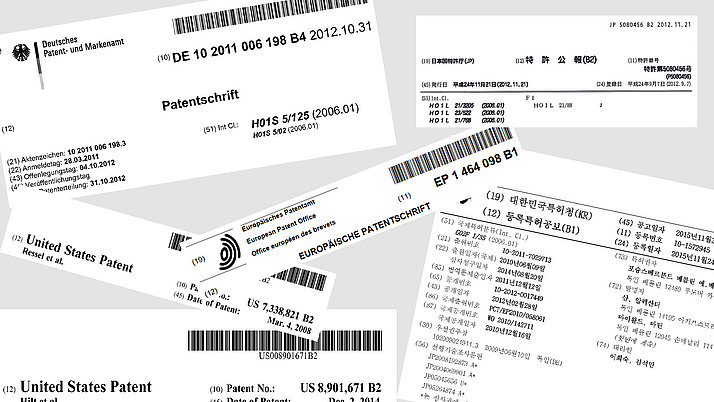Transferred-Substrate InP/GaAsSb Heterojunction Bipolar Transistor Technology With fmax ∼ 0.53 THz
N.G. Weimann1, T.K. Johansen2, D. Stoppel3, M. Matalla3, M. Brahem3, K. Nosaeva3, S. Boppel3, N. Volkmer3, I. Ostermay3, V. Krozer3, O. Ostinelli4, and C.R. Bolognesi4
Published in:
IEEE Trans. Electron Devices, vol. 65, no. 9, pp. 3704-3710 (2018).
Abstract:
We report on the realization of transferred-substrate InP/GaAsSb double heterostructure bipolar transistors in a terahertz monolithic integrated circuit process. Transistors with 0.4-µm-wide single emitters reached unilateral gain cutoff frequencies of around 530 GHz with simultaneous current gain cutoff frequencies above 350 GHz. Extrinsic collector capacitance is effectively reduced in the transfer-substrate process. In combination with the high collector breakdown voltage in the InP/GaAsSb heterobipolar transistor structure of 5 V, this process is amenable to analog power applications at millimeter (mm-wave) and sub-mm-wave frequencies. We demonstrate reliable extraction procedures for unilateral gain and current gain cutoff frequencies.
1 Components for High Frequency Electronics Department (BHE), Faculty of Engineering, University of Duisburg-Essen, 47057 Duisburg, Germany
2 Electromagnetic Systems Group, Department of Electrical Engineering, Technical University of Denmark, 2800 Kongens Lyngby, Denmark
3 Ferdinand-Braun-Institut, Leibniz-Institut für Höchstfrequenztechnik, 12489 Berlin, Germany
4 Millimeter-Wave Electronics Group, ETH Zürich, 8092 Zürich, Switzerland
Index Terms:
Gallium arsenide antimonide, heterojunction bipolar transistors, indium phosphide, millimeter-wave (mm-wave) integrated circuits, submillimeter-wave (sub-mm-wave) integrated circuits.
Copyright © 2018 IEEE - All rights reserved. Personal use of this material is permitted. However, permission to reprint/republish this material for advertising or promotional purposes or for creating new collective works for resale or redistribution to servers or lists, or to reuse any copyrighted component of this work in other works must be obtained from the IEEE.
Full version in pdf-format.


